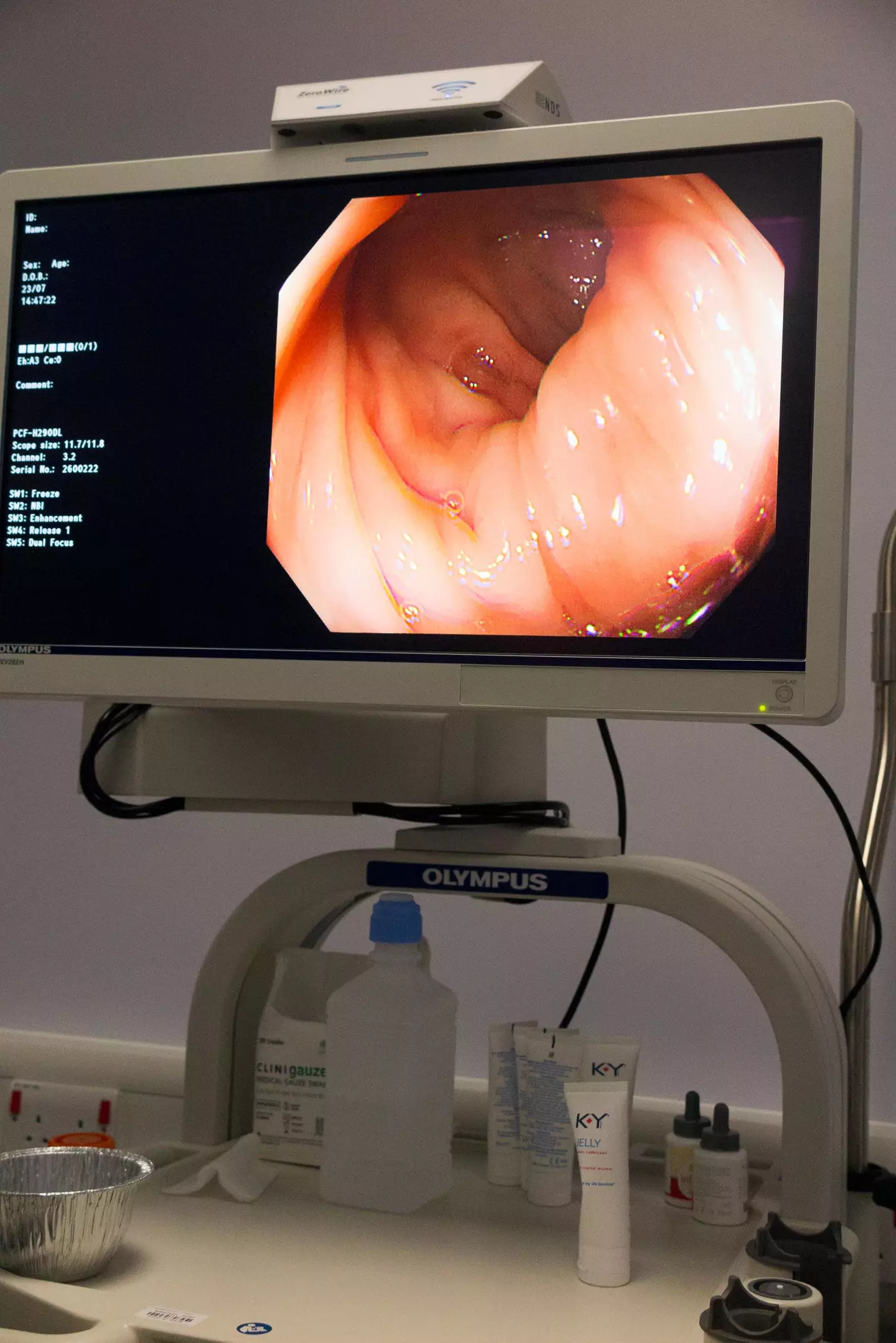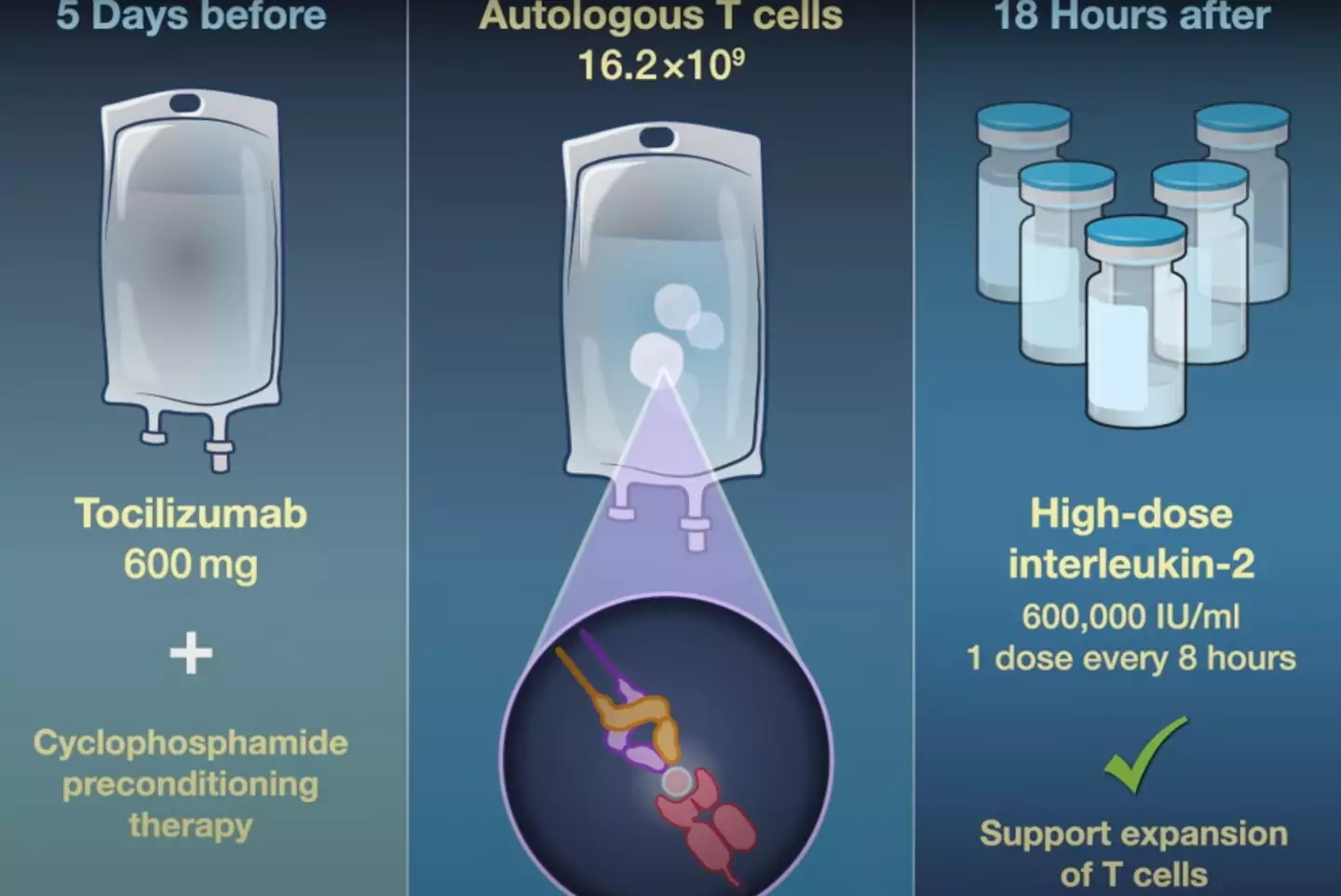
A new drug has been found to have a 100 percent success rate in treating cancer.
Scientists believe they may have made a major breakthrough in the fight against colon cancer.
A recent drug trial found that Dostarlimab, which uses laboratory-produced molecules as a substitute for antibodies in the body, was successful in defeating the disease.
Throughout the study, patients took Dostarlimab every three weeks for six months.
Advert
Doctors then carried out a number of follow-up tests including physical exams, MRI scans and PET scans on the participants.
However, within a year of the trial, every one of the 18 patients who took part was in remission.

Not only that, but none of the patients involved experienced any serious complications during the trial either.
Usually about one in five patients tends to exhibit a bad reaction to drugs like this.
Speaking about the trial, Luis Diaz Jr., MD, the senior study author and an oncologist at Memorial Sloan Kettering Cancer Center in New York City, told The New York Times that it was a ground-breaking piece of research.
He said: "I believe this is the first time this has happened in the history of cancer."
Andrea Cercek, MD is the lead study author and an oncologist at Memorial Sloan Kettering Cancer Center.
She said: "There were a lot of happy tears."
Dr. Hanna K. Sanoff of the University of North Carolina’s Lineberger Comprehensive Cancer Center, described the study as 'small but compelling'.
She said: "Very little is known about the duration of time needed to find out whether a clinical complete response to Dostarlimab equates to cure."
This comes after doctors revealed a new experimental therapy for patients with pancreatic cancer.
In 2018, Kathy Wilkes, from Ormond Beach, Florida, was diagnosed with aggressive pancreatic cancer.
However, this year, in just a single month, the 71-year-old had her metastic cancer reduced by 50 percent by a 'one-and-done' treatment.
Prior to the new experimental therapy, Wilkes' cancer had been continuing to spread.
Despite eight rounds of chemotherapy and having part of her pancreas removed in an operation, it took just a year for the cancer to spread to her lungs.
Wilkes told NBC News: "When I talked to my hometown oncologist and asked him what to do, he only had one answer, and that was chemotherapy. And I said, ‘That’s not my answer'.
"I thought, 'That is the trial I want'. I knew that that was the trial that was going to save me, save my life. I just had that feeling."
Wilkes subsequently reached out to Dr Eric Tran, who is the author of a report on an experimental type of gene therapy that targets KRAS G12D – a type of cancer mutation.

She agreed to undergo a new experimental therapy known as Neoantigen T-Cell Receptor Gene Therapy.
In just one month, Wilkes' metastic cancer was revealed as having shrunk by half.
The report stated: "Regression of the patient’s metastatic lung lesions was observed on computed tomography at the first clinical follow-up 1 month after the cell infusion, with an overall objective partial response according to the Response Evaluation Criteria in Solid Tumors (RECIST), version 1.1, of 62%."
Six months after the treatment, her tumours had reduced by 72 percent.
If you have a story you want to tell, send it to UNILAD via [email protected]